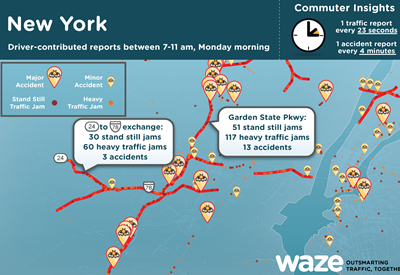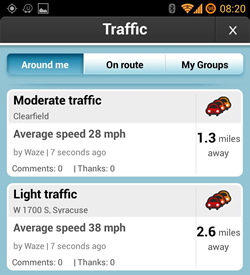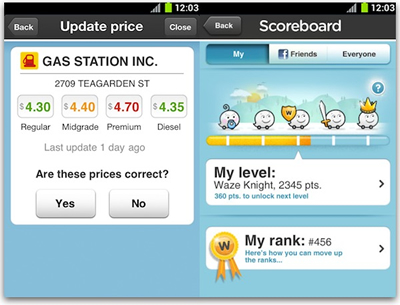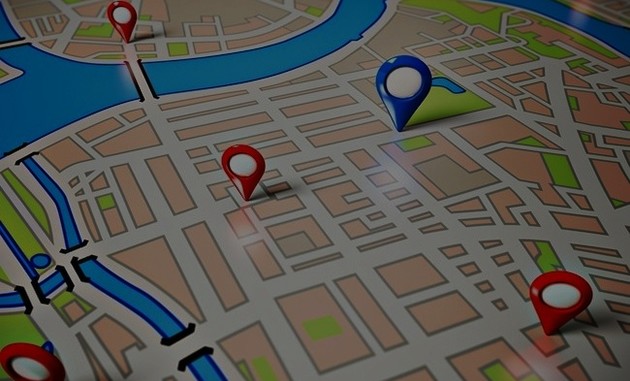What’s real-time, crowd-sourced traffic information worth to Google? About one billion dollars, which is how much the company has reportedly agreed to pay for the popular crowd-sourced, social-friendly traffic app Waze this week, according to the Financial Times. The deal is the fourth largest in Google’s 15-year history.
 Although neither company has announced the exact dollar amount agreed upon, inside sources have stated it is about $1.1 billion. Others have said the deal is closer to $1 billion, while some have said it’s as high as $1.3 billion. No matter how you count it, that’s a lot of money for the small Israeli company founded only seven years ago as an open-source mapping project.
Although neither company has announced the exact dollar amount agreed upon, inside sources have stated it is about $1.1 billion. Others have said the deal is closer to $1 billion, while some have said it’s as high as $1.3 billion. No matter how you count it, that’s a lot of money for the small Israeli company founded only seven years ago as an open-source mapping project.
Israeli tech blog GeekTime also confirms the $1.1 billion amount and how it will be distributed: “$1.03B will be transferred in cash directly to the company and its stockholders. An additional $100M will be awarded to employees based on performance.”
 After its acquisition, Waze will remain a separate entity, and its headquarters will remain in Israel. “Nothing practical will change here at Waze,” said Waze CEO Noam Bardin in a company blog post. “We will maintain our community, brand, service and organization – the community hierarchy, responsibilities and processes will remain the same.”
After its acquisition, Waze will remain a separate entity, and its headquarters will remain in Israel. “Nothing practical will change here at Waze,” said Waze CEO Noam Bardin in a company blog post. “We will maintain our community, brand, service and organization – the community hierarchy, responsibilities and processes will remain the same.”
While Google fans may be happy that they’ll eventually get Waze’s crowd-sourced traffic functionality added to Google Maps, not all of Waze’s 47 million users are happy about the deal. Some Waze users fear a Google with all-prying eyes, obtaining too much of their location data. Others fear that Google might exclude altogether Waze data on police radar traps and speed cameras, to comply with different regulations in certain countries.
 For Google, the Waze purchase is strategic in many ways. For one, Google can use Waze’s social features to leverage Google+ and make Google Maps more social. And as TechCrunch reports, Google will be able to leverage Waze’s vast repository of socially shared, diverse location based data — because Google “loves to experiment with different ways to visualize Big Data in its maps.”
For Google, the Waze purchase is strategic in many ways. For one, Google can use Waze’s social features to leverage Google+ and make Google Maps more social. And as TechCrunch reports, Google will be able to leverage Waze’s vast repository of socially shared, diverse location based data — because Google “loves to experiment with different ways to visualize Big Data in its maps.”
Owning Waze will also give Google a strong hedge against Apple and Facebook, among other competitors, as TechCrunch further points out. “On one hand, it gives [Google] a nice, healthy wedge into the mass of consumers who are already using the app on iOS devices. But it also, if reports are to be believed, also gives Google a way of roadblocking how companies like Facebook could use Waze’s assets. As the startup likes to point out, it’s not a mapping company, but a big data player. …This will mean that Facebook will need to have to continue to use third-party data for its own location-based searches and information, or less look to acquire elsewhere.”
Facebook and Apple reportedly had tried to negotiate to acquire Waze as well, but neither company has admitted to any such involvement with the company.





